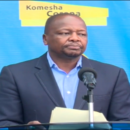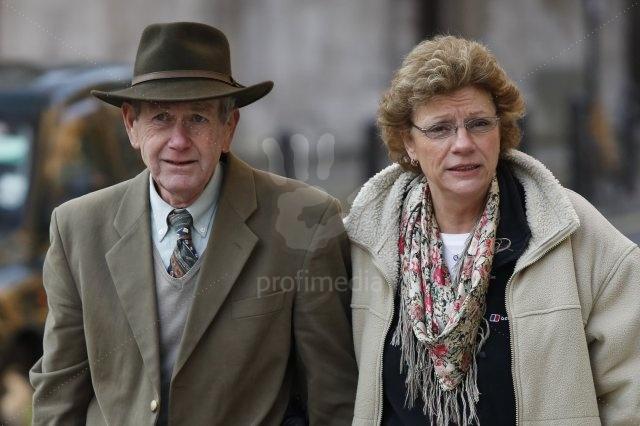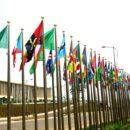“War in Darfur and the Search for Peace” continued
This posting continues a discussion of the main themes of War in Darfur and the Search for Peace (Harvard University Press 2007). The second part of the book draws on an appraisal of the Darfur peace process, conducted shortly after the closure of the Abuja peace process by several of the leading mediators and their advisers, and an analysis of the international response. Three chapters were written by members of the African Union mediation team in Abuja, and another assesses Darfurians’ reactions to the agreement, and its failure.
In addition, Chapter 13 (by Deborah Murphy) focuses on the coverage of Darfur in the U.S. media and chapter 14 (by Rebecca Hamilton and Chad Hazlett) is the first detailed account of the origins and organization of the mass campaign for Darfur in America.
Let me draw together some of the key points from the analysis of the Darfur peace process and why it did not succeed.
From within the mediation process, the central problem was that there was not enough time to develop confidence among the negotiators, both with the issues and with one another. This was particularly so for the movements. In his essay in the book, Laurie Nathan argues that "deadline diplomacy" is usually fated to fail and this was one such instance.
I was an adviser to the mediators and at the time I certainly believed that with a little more time, the gaps could have been bridged. The official mediation effort closed on May 5, 2006 after a dramatic last 24 hours in which the key international figures — President Olusegun Obasanjo and Deputy Secretary of State Robert B. Zoellick — stepped out of the impartial role of mediatiors into the role of active negotiators, pressing the parties to sign. The final days of the peace process were dramatic and have not been properly documented (though the recent book by Glenn Kessler on Condoleezza Rice includes details). I stayed on another two weeks in Abuja—trying to persuade Abdel Wahid al Nur to either sign the agreement, or remain in ongoing talks with the government. The gap narrowed but was not closed. My views on Abuja are influenced by knowing how close the mediation came to success.
Had the peace talks currently scheduled for Libya on October 27 been slated for June or July 2006 I believe they would have faced a good prospect of success. The logic of these negotiations is that relatively little additional effort is needed to bring government and rebels together. That might have been true seventeen months ago, but much has changed in the interim.
In our internal post mortem seminar on the Abuja process, we detailed a catalogue of shortcomings. Corners were cut and mistakes were made. Perhaps most importantly, the mediators were not energetic enough in bringing all the key actors, both in Sudan and internationally, into the process as supporters of the mediation effort. The internal integrity of the peace process was not robustly defended. But to understand why the Abuja process failed, we also have to look at the wider political context.
Laurie Nathan rightly castigates the international community for imposing arbitrary deadlines on the peace talks. But there were good reasons for hurry. Let me outline three of them:
1. The war in Chad. Early on in the talks it became clear that if there was a full-scale war in Chad then the mediation was sure to fail. The main reason for this was that several of the rebel groups would become proxies for the Chad government and Chadian president Idriss Deby would not want Darfur’s crisis resolved until his own internal political problem was solved. This happened. Between December 2005 and April 2006 Chad was on the slide to war and when Sudan-based rebels attacked N’djamena in April 2006, JEM forces fought in the city’s defense. After that there was no possibility of JEM signing the Darfur Peace Agreement.
2. The changing political situation in Sudan. In 2005, there was a spirit of optimism that the Comprehensive Peace Agreement that brought to an end the war between North and South would lead to democracy and the transformation of governance in Sudan. When SPLM leader John Garang was alive, the Darfurian rebels believed they had a national champion for their cause and a strong alliance with the SPLM. Vice President Ali Osman Taha was ready to make the necessary compromises to achieve peace. But after Garang’s death and Ali Osman’s slow political eclipse, this alignment slipped. When he arrived in Abuja to try to make a political breakthrough in April 2006, Ali Osman no longer had the political clout to take a lead in offering compromises. He needed to watch his back as his rivals were ganging up on him, and departed empty-handed. It was after he decided to leave that the AU decided on its fall-back option of putting its own text on the table—always a risky gamble for a mediator.
3. There was pressure for a quick fix in order to bring in UN peacekeepers. This pressure came from the U.S. administration which had resolved on this as a policy priority, partly in response to the pressure of activists. This led to impatience with the slow pace of the talks and the imposition of arbitrary deadlines. This is my major criticism of some of the leaders of the Darfur campaign in the U.S.: their focus on military intervention and peacekeeping led to situation in which the peace process itself was compromised.
The formal structure of the Abuja peace talks resembled a square table, with the mediators along one side, the government and armed movements facing one another, and the international observers completing the square. To all intents and purposes it looked like an inter-state negotiation with well-organized parties facing one another. The reality was different. Just as civil war in Sudan is a continuation of politics by other means, so is a peace process.
The real processes at work were two parallel bargaining sessions outside the hall. One was the Sudan government trying to strike deals with individual rebel leaders (and the Chadians, Libyans and Eritreans trying to subvert that and strike their own deals). Retail politics continued in the corridors of the Chida Hotel, with the government’s chief negotiator, Majzoub al Khalifa, trying to buy off Abdel Wahid and, failing that, individual rebel delegates. Majzoub was also watching his rivals in Khartoum whom he suspected of cutting parallel deals with Minni Minawi and Khalil Ibrahim.
The other process was bilateral negotiation between Khartoum and Washington DC over the dispatch of UN troops and other issues of concern, including the implementation of the CPA and counter-terrorism cooperation. In important respects, the AU’s effort was a diplomatic cover for the U.S.’s dealings with Khartoum—certainly, all the diplomats present in Abuja believed that whatever deal was ultimately made, would be brokered by the Americans.
The mediation could not preserve the autonomy of the peace process under these pressures. My main criticism is that it could have tried harder to do so. Ultimately, the tragedy of the Darfur peace effort was that the maturity of the process itself did not align with the dynamics of the external political factors. A workable peace was narrowly missed, and the opportunity may not come again for a while, and when it does, it may look very different.






